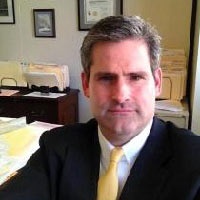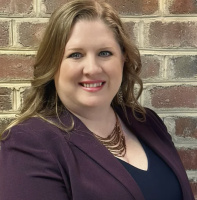 Bailey Felony Lawyers, North Carolina
Bailey Felony Lawyers, North Carolina
Sponsored Law Firm
-
 x
x

Click For More Info:
-
2860 Ward Blvd, Wilson, NC 27893
Lusby & Stokes Attorneys, P.A.» view mapCriminal Defense Law Changing What You Think A Lawyer Should Be
At Lusby & Stokes, P.A., we are a new kind of law firm for a changing world. We are consistent, patient and professional, giving each new case the attention it deserve.
800-966-5430
Sponsored Lawyers
1-5 of 5 matches
Criminal, Felony, DUI-DWI, Misdemeanor
Faucette Law Firm attorneys have represented individuals charged with murder, death by motor vehicle, armed robbery, burglary, kidnapping, extortion, embezzlement, statutory and forcible rape, complex cyber crimes, drug trafficking and all lessor drug crimes, theft and property crimes, DWI and all lessor traffic matters. Let founding attorney Matt Faucette help you avoid a prosecution in your matter. The first thing we need to find out for you, however, is whether Mr. Faucette's brother, who has been an Assistant DA in Wake County for 20 years, is the prosecutor. If so, Mr. Faucette can still represent you, but he will need to get your informed consent on the issues related to representing a client against a family member. Secondly, Mr. Faucette's philosophy is to get your side of the story, as well as important information about you as a PERSON, not just as a name on a police report, in front of the prosecutor. Mr. Faucette's goal is to assist the prosecutor in seeing the facts of the case through your eyes, so there is a better chance at a favorable outcome like a dismissal of all charges.
(more)Criminal, DUI-DWI, Felony, White Collar Crime, Misdemeanor
Attorney Lindsey D. Granados is an experienced trial lawyer and seasoned litigator who advocates tirelessly for her clients. She truly cares for the well-being of her clients, and her compassion and desire to see justice in action motivates her to seek the best possible outcome in each case. Over the course of her career, Lindsey has tried hundreds of District Court cases—infractions, misdemeanors of every variety, DWIs—and numerous high-level felony criminal jury trials to verdict in Superior Court. Lindsey Granados formed Granados Law Group, PLLC in January 2023 when her law partner, Wiley Nickel, was elected to serve North Carolina in Congress. Although our name and location have changed, GLG remains committed to providing high-quality legal services to our clients! Prior to the name change, Lindsey Granados was recently named Partner in the firm of Nickel & Granados, PLLC. When Lindsey Granados initially joined The Law Offices of Wiley Nickel, PLLC in 2020, she expanded the firm’s areas of representation to include high-level felonies like drug offenses/trafficking, sex offenses, felony hit & run, habitual felon offenses, felony domestic violence offenses and child abuse offenses, federal crimes, and sex offender registry termination petitions, just to name a few. Presently, Granados Law Group routinely handles ALL criminal matters from the smallest traffic tickets to DWIs, drug charges, assaults, to robbery, sex crimes, and even murder charges. If you have any kind of criminal case, Granados Law Group and its team of experienced litigators and staff can help you. The firm also takes great pride in our statewide expungement practice, and each year, our firm helps hundreds of individuals reclaim their criminal records from past mistakes. Ms. Granados was born and raised in Seminole, Oklahoma. She graduated from Oklahoma Baptist University, located in Shawnee, Oklahoma with a Bachelor’s degree in Political Science, with honors, magna cum laude. Lindsey then moved halfway across the country to attend law school at Stetson University College of Law in Gulfport, Florida. Desiring to be closer to some extended family in the area, Lindsey moved directly to North Carolina the day after graduating from law school, and she can’t imagine ever leaving her adopted home state of North Carolina. Lindsey is married to her college sweetheart, Ian, and they are the proud parents of a soon-to-be teenager. The Granados family attends Raleigh Chinese Christian Church, located in Cary, where Lindsey is very active and involved in Sunday school and the church music ministry, where she enjoys singing and helping lead worship in the church’s praise band. Regarding professional engagement, Ms. Granados presently serves on the Boards of the Wake Women Attorneys and the Wake County Academy of Criminal Trial Lawyers, having also previously been elected President of both organizations. For many years, Ms. Granados has also been involved with the Wake County Bar Association CLE Committee and now serves on the Grievance Committee as well. Previously, Lindsey volunteered as the co-chair of the NCAJ High School Mock Trial Competition for over a decade, running a regional competition for high school students learning about our system of laws. In 2021, Lindsey was appointed by then Chief Justice Cheri Beasley to serve on the North Carolina Sentencing Policy Advisory Commission (SPAC) as a representative of the North Carolina Advocates for Justice, representing the criminal defense attorney voices from across the State in a multi-disciplinary commission that advises the State Legislature on the impact of changes to sentencing laws. Commissioner Granados has been subsequently re-appointed by Chief Justice Paul Newby to continue serving in this role for a 3rd term with the SPAC, which meets quarterly. As North Carolina courts transtioned to eCourts, Ms. Granados was invited to serve on the eCourts implementation team for Wake County, and she provided valuable input on behalf of the local and statewide criminal defense bar regarding the Pilot County rollout, which led to the North Carolina Advocates for Justice (NCAJ) awarding Lindsey the "Ebbie Award" in 2023 for her service to the organization updating members as to the continual changes that were taking place. Most recently, Ms. Granados was nominated to serve on the Board of Trustees for the NCAJ, and she is excited to participate and help steer the direction of the affinity bar organization moving forward. In addition to her extensive experience defending people accused of crimes, Ms. Granados also previously served as an Assistant District Attorney in Wake County. Lindsey’s experience on both sides of the aisle gives her a well-rounded perspective when she approaches a case, and she utilizes her relationships in the courthouse to advocate tirelessly for her clients’ rights. When you are charged with a criminal offense, you need an attorney who will walk with you every step of the way, demystifying the criminal court process, which can often be confusing, overwhelming, and even scary. More importantly, you deserve to have a lawyer who will fight for your rights and defend you well. Call Granados Law Group at 919=650-2851 to set up a consultation with Attorney Lindsey D. Granados today!
(more)


 Christopher Lusby Kenly, NC
Christopher Lusby Kenly, NC AboutLusby & Stokes Attorneys, P.A.
AboutLusby & Stokes Attorneys, P.A. Practice AreasExpertise
Practice AreasExpertise


